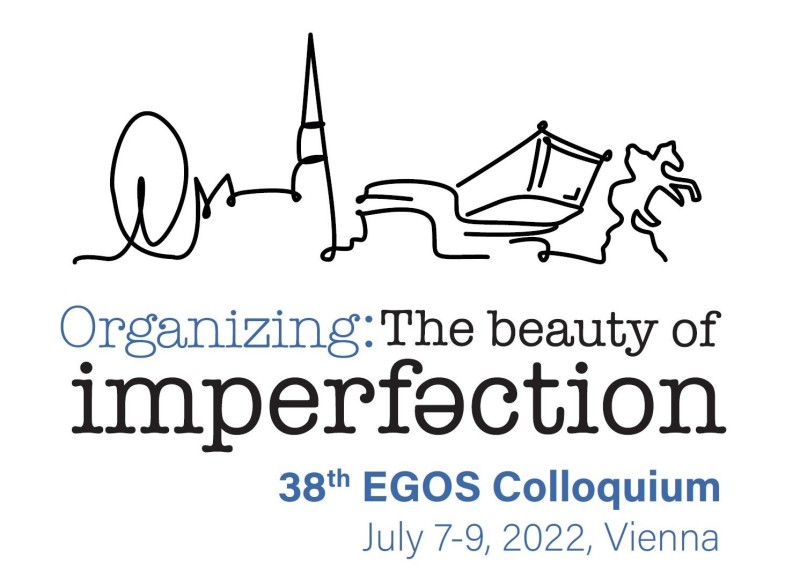Sub-theme 14: [SWG] The Role of Emotions and Embodiment in Extreme Contexts
Call for Papers
The aim of this sub-theme is to explore how and why emotions and embodiment are central to our understanding of operating
in extreme contexts. By definition, emotions and embodiment are salient for operations since the wrong move may get someone
hurt or killed, and the senses matter for interpreting the situation. Theorizing about the role of emotions and embodiment
in extreme contexts can be generative for moving the literature on, for example, in sensemaking, organizational routines and
the microfoundations of institutions. Embracing the “turn to affect” in MOS (Gherardi, 2017) will advance our knowledge of
what a skillful performance in extreme, as well as in conventional contexts, is really all about.
In brief,
‘extreme contexts’ are settings where people face persistent existential threat that may exceed their abilities to manage
(cf. Hannah et al., 2009: 898). Whereas the consequences of such threat often are negative, for example, the loss of human
life; the outcome may also be positive, e.g. new knowledge and innovations. The aim of the sub-theme is to open up a dialogue
on how to conceptualize extreme contexts for the purpose of integrating and consolidating the fragmented literature (see,
for example, Bundy et al., 2016; Hällgren et al., 2018; Williams et al., 2017).
Suggested research questions
include, but are not limited to
What is the impact of basic emotions like fear, anger, disgust, happiness, sadness and surprise, as well as moral emotions like pride, empathy, moral anger, betrayal, shame, on the people and organizations in extreme contexts?
What triggers emotional responses for actors in extreme contexts, the processes through which these emotions motivate individual and collective action responses, and the outcomes of these actions for ‘organizing’ in extreme contexts?
When and how do extreme contexts elicit more intense emotional experiences for actors working in them compared to workers in non-extreme contexts?
To which extent is actor’s emotional experiences in extreme contexts individually experienced and transient or shared and enduring, and the implications of the scope of these emotional responses for organizing?
What is the interplay between actor’s embodied experience of risk in an extreme context and the cognitive and affective evaluations of known risk, unknown risk and uncertainty? Consideration could also be given to how and when auditory, visual and tactile sensations are more intense in extreme contexts and the implications of this for organizing work and workers.
How do managers deal with the emotional tension between feeling responsible for what is happening, and yet the need to also distance themselves from the situation at hand to be able to function effectively?
How does the regulation of emotions play out in extreme events?
What is the role of boredom in extreme contexts?
What is the role of sensory knowledge for interpreting sensemaking in extreme contexts?
Importantly,
we seek high-quality contributions that focus on theoretical insights and help advance the subfield of extreme context research
(ECR) conceptually, theoretically and methodologically and, in doing so, also develop new insights for management and organization
studies more generally.
For sub-theme related activities, please see www.organizingextremecontexts.org;
see also the overview on the EGOS Standing Working Group (SWG) 14 at: https://www.egos.org/SWGs/SWG-14
References
- Bundy, J., Pfarrer, M.D., Short, C.E., & Coombs, W.T. (2016): “Crises and Crisis Management: Integration, Interpretation, and Research Development.” Journal of Management, 43 (6), 1661–1692.
- Gherardi, S. (2017):” One turn… and now another one: Do the turn to practice and the turn to affect have something in common?” Management Learning, 48 (3), 345–358.
- Hällgren, M., Rouleau, L., & de Rond, M. (2018): “A Matter of Life or Death: How Extreme Context Research Matters for Management and Organization Studies.” Academy of Management Annals, 12 (1), 111–153.
- Hannah, S.T., Uhl-Bien, M., Avolio, B., & Cavarretta, F.L. (2009): “A framework for examining leadership in extreme contexts.” The Leadership Quarterly, 20, 897–919.
- Williams, T.A., Gruber, D.A., Sutcliffe, K.M., Shepherd, D.A., & Zhao, E.Y. (2017): “Organizational Response to Adversity: Fusing Crisis Management and Resilience Research Streams.” Academy of Management Annals, 11 (2), 733–769.


